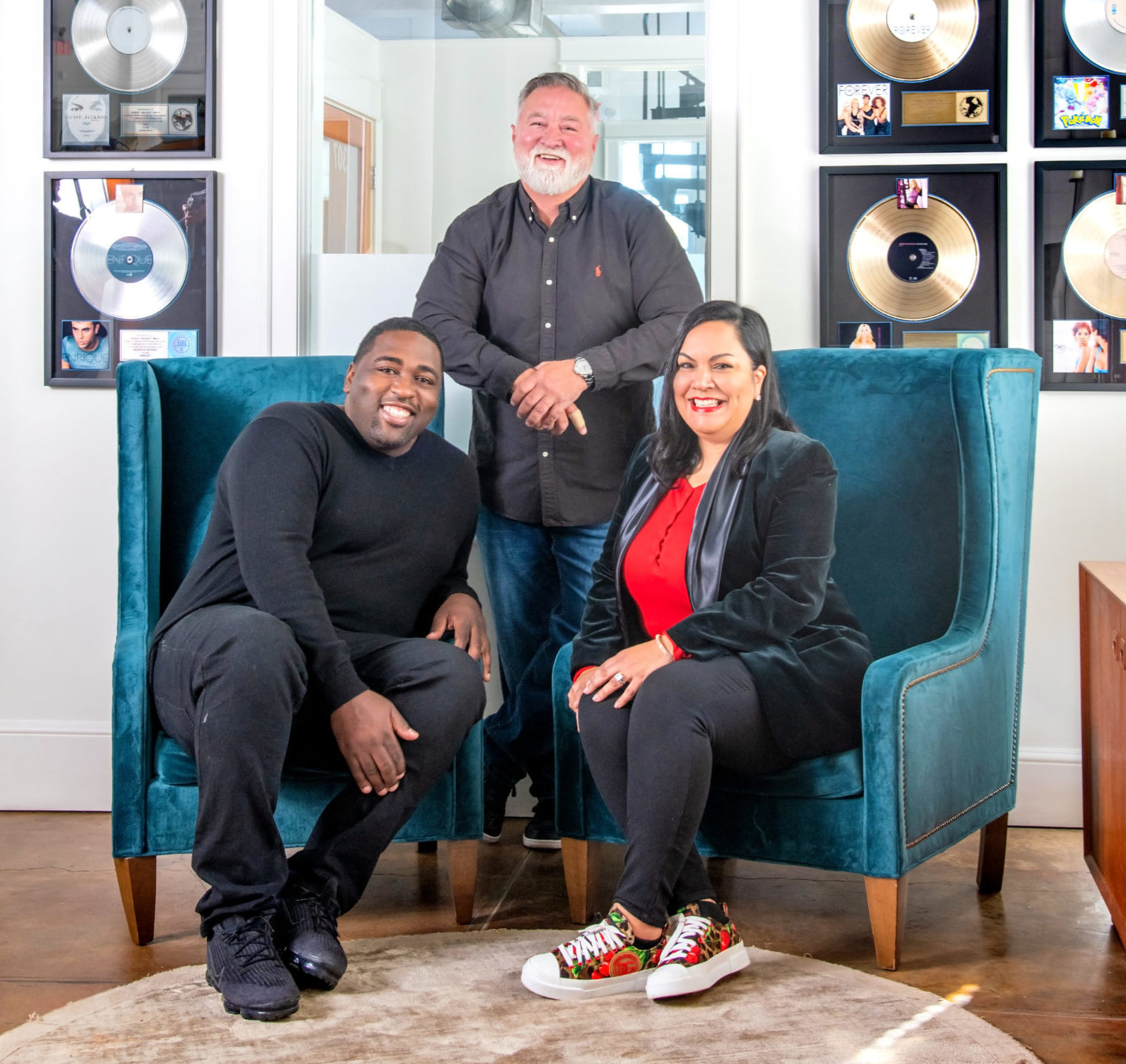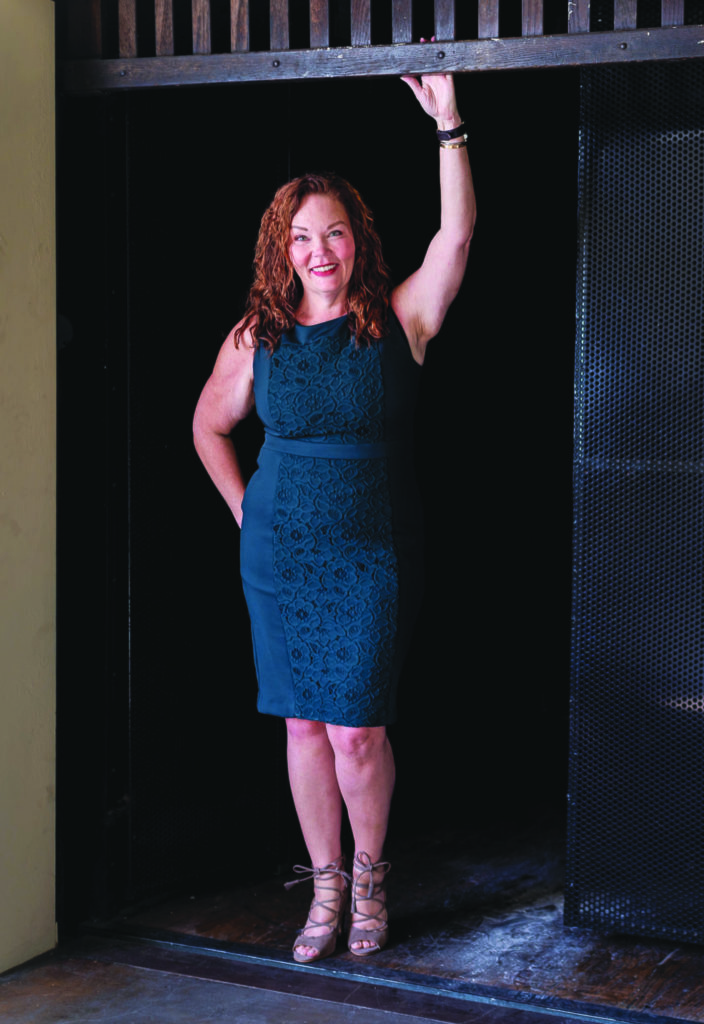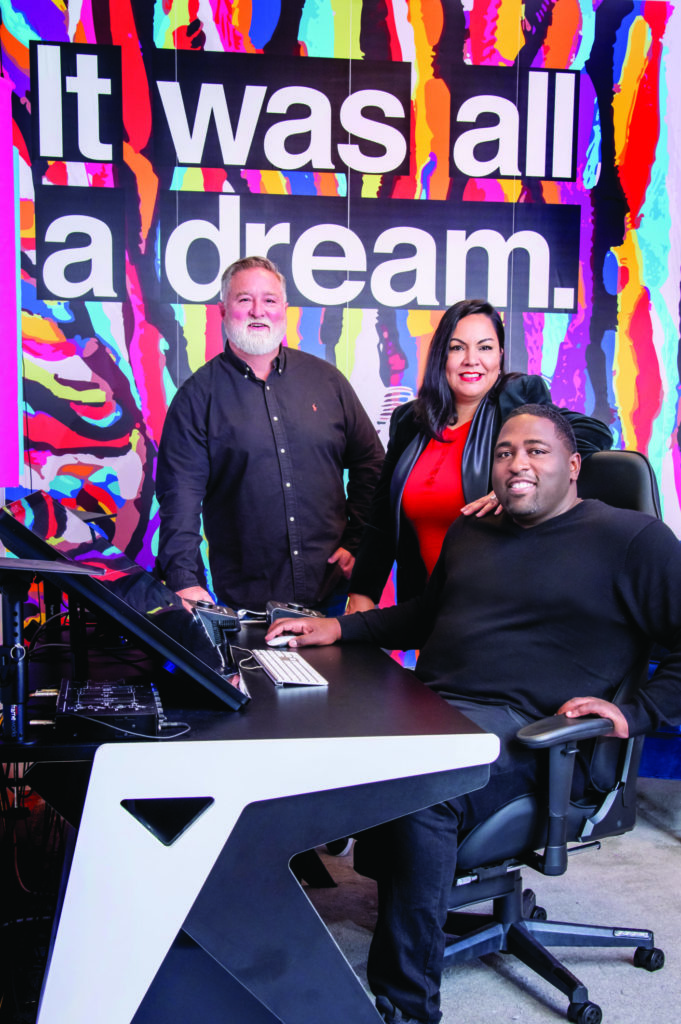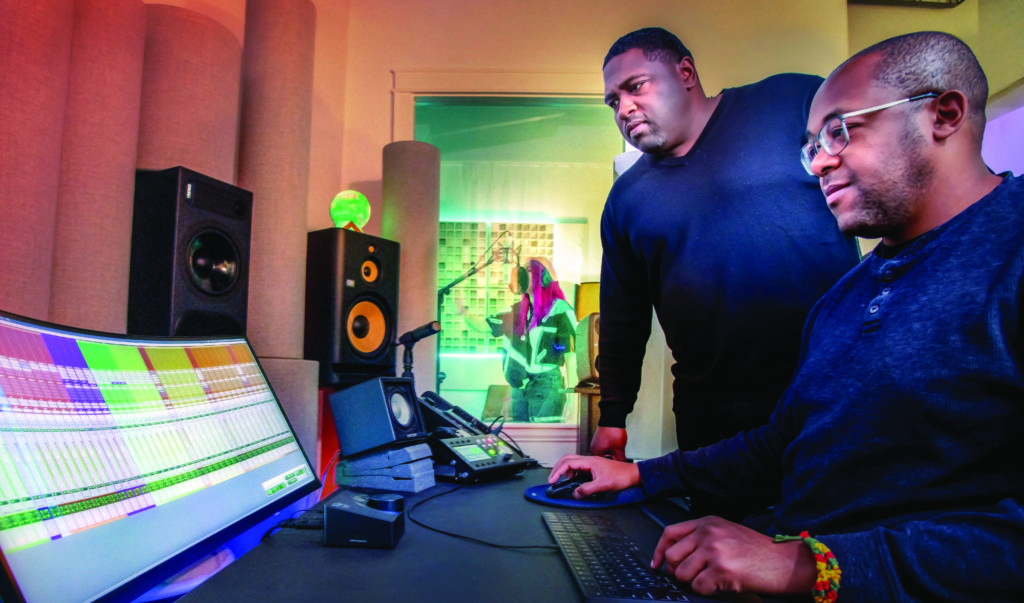A new kind of music company is rising in Ocala, led by a dynamic team of collaborators.

In 2020, noted local philanthropists David and Lisa Midgett introduced the community to their North Magnolia (NOMA) Gallery in the storied 1939 Coca-Cola bottling plant building at 939 North Magnolia Avenue. The fine arts gallery was created to help expand the existing art scene in Ocala and create even more opportunities for local artists. The couple generously supports a wide range of arts organizations through The David & Lisa Midgett Foundation. Lisa also serves as chair of the Marion Cultural Alliance and David is on the board of the Reilly Arts Center, as well as the Community Foundation for Ocala/Marion County.

The gallery was not the only venture the couple had in mind for the historic venue. The pair, who have known one another since the tender age of 11 and who sang together in church throughout their youth, envisioned creating an indie record label.
“We’ve just always had music and art in our lives,” Lisa confides.
For that venture, which they named NOMA Records, they enlisted the help of their talented friends, husband and wife Bert Smith and Xochitl Jacques-Smith—affectionately referred to as “Big Bert” and “Xochee.” Both contribute essential expertise to the mix. Xochitl, the company’s chief marketing officer, brings a wealth of experience in marketing, brand development and media relations and Bert is an acclaimed musician and record producer, having worked with A-list artists and recording projects in Los Angeles and Miami.
“Our getting together is an interesting partnership,” notes David, who is the chairman of the label as well as the president of The Midgett Law Firm, in his signature self-effacing style. “My music background is…well, I can play a little bit of piano, but I’d be better on the kazoo.”
“I started in the business professionally at age 16,” Bert recalls, though he had been playing the drums, keyboards and a Hammond B-3 organ in church from about the age of 4. “From there it progressed to writing songs. My cousin built a small studio set-up in his house, where we began to record and make beats. By 16, I had my own studio in my basement.”
At 18, he had placed his first song with multi-platinum pop sensation Enrique Iglesias.
“From 18 and on, I worked in the industry composing and producing for multi-platinum artists including Beyonce, Michael Jackson, The Spice Girls, Jennifer Lopez and Toni Braxton,” he explains. “It’s been an amazing journey to be able to work with such esteemed artists and talent from such a young age. It never gets old.”
He counts his time working with Michael Jackson among his greatest career highlights. “It was an honor to be able to co-write and produce on his last studio album Invincible,” Bert recalls. “I got to spend a lot of time with him and witnessing his creative genius is something I will never forget.”
That sort of collaboration is inherent in the vision for NOMA Records and the group is passionate about helping emerging artists and songwriters develop their craft and create lasting careers.
“I’ve worked with major record labels and artists for the majority of my career. The opportunity to start an independent record label is the next progression,” Bert asserts. “I want NOMA Records to be a part of developing and producing the next wave of new talented artists and a few Grammys along the way wouldn’t hurt either. My role as CEO is making sure we’re developing, producing and distributing music and content at the highest level.”
“When Bert and I first started talking, he wanted a partner who could handle the business side of things,” David explains. “I get to do the resource and business development work and he is focused on the creative side. He’s just phenomenal at what he does and all of his contacts are going to allow us to have those partnerships beyond what happens here. We’re not looking to be a little local record label.”
They are also not looking to be a record label in the traditional sense of cutting albums. NOMA Records aspires to be a new kind of music company with the mission to help songwriters make the most of their songs in the digital age. Over the past 20 years, the music industry has been transformed by technology and true innovators have developed non-traditional ways to monetize music consumption and conceive of different models that capitalize on new opportunities. Fast Company magazine recently said of the shift, “The 10 most innovative music companies of 2021 spent the year changing the industry’s tune for the better.”

“Xochee and Bert secured a partnership with Dolby Atmos, so our studio has a new immersive audio setup. Apple Music is doing it. Netflix is doing it. You’re starting to see the first sound bars come out for it. It’s their spatial audio, immersive audio. Instead of just 5-1 Dolby, you’ve got height to it as well. You can make things go over your head instead of just going around,” David explains. “Dolby came here and worked with us and now we’re creating educational video content for them. And they’re going to help our artists and our songs on their playlists. We’re one of the only Atmos studios on the East Coast and the only one in Florida. It’s a small studio, but it’s state-of-the-art. All that digital technology combines with nice analog technology to create a specific kind of sound.”
The team spent 2021 building the studio out, signing artists, hosting writer’s camps and bringing in songwriters.
“We’ve been working a lot more with songwriters than artists. We brought in some new folks to develop and some really established songwriters,” David shares. “One of Bert’s friends is Robert Waller. He’s had multiple Grammy nods for work with Beyonce . He came in and worked with our new songwriters. This past year was just put your head down and create, so we’ve got about a dozen albums worth of music. It’s about 130 songs. The idea was to get the catalog created and right now Bert and Zulu (engineer/vocal producer) are in the studio mixing and mastering all those songs—getting them perfect.”
From there David meets Goliath…or more accurately, NOMA engages a group of Goliaths.
According to WIRED magazine, “Three major record labels produce two-thirds of all music consumed in America. They are the most powerful buyer of music and talent, and they use that power to prioritize a handful of mega-stars and pop hits. They pitch music into massive radio conglomerates and streaming platforms that control how music is consumed, and they collect an ever-growing share of industry revenue.”

And though things worked out for the biblical David, there’s no need for a battle this time out, as the David in this tale has an inside man on his side.
“Bert’s got contacts at Sony and Warner Chappell and all the major record labels. We want partnerships with those ‘majors’ for distribution so their artists will come here and record… their songwriters will come here and write with our songwriters. A small independent label like ours can scout talent, bring them in, record and do things a lot less expensively than the big guys can. But, ultimately, we need them to get the distribution, to get the buzz, to get the artist a break—that’s what they’re great at.”
What they believe will allow them to secure these relationships is further innovation. “A lot of people don’t know that when you hear a song on the radio, there’s two different copyrights involved: the song composition and the master recording. The songwriter who owns that song, along with the publisher, gets paid on the composition copyright, the artist who sings and the record label get paid when the song is played,” David explains. “We’re really focused on the song copyrights right now. Everything we’re recording is done as if it’s a finished product. It’s not the kind of thing that’s recorded in someone backyard or a garage demo. These are finished records—ready to go. First, we’re looking to place some of these songs. If we can send some of these to Warner Chappell and they go, ‘Oh, we have an artist at Warner Records and this song would be perfect for them,’ we place that with that artist. We get paid upfront. Our songwriters and us, as publishers, get paid and then there’s a better residual income because you’ve now got a star singing that song. Second, we’re trying to do songs so they are in good enough shape that we could place them directly for “sync rates” for film and TV. So, for instance, on Netflix or Showtime when you watch your average show you hear 15 different song placements. There’s a huge market for that, and it’s burgeoning. They want songs where the person who’s pitching that for placement has both the master recording and the composition, because trying to track those down and negotiate with everyone, get everyone credited, get everyone paid…it’s kind of tough because those are all negotiated one at a time. We go to these larger record labels and publishers with these packages of songs and say, ‘Look what we were able to do on our own. Here’s the catalog we’ve created this year. If we partner and you provide some funding, we can bring more artists in. We can produce more of this kind of music for you’. That’s really the primary push, to use the catalog to create new relationships.”
“We’re focused on connecting with new and established talent. Collaboration and community is so important in the work we do,” Xochitl notes. “The evolvement comes from each artist and song. It’s exciting and the possibilities are endless.”
Another way in which the label is breaking with the past is in the approach to how artists are compensated for their work.
“You have these traditional loyalty deals in the music business where they sign you as an artist and they own your master recordings and you get like a 12% to 13% royalty subject to recoupment. You’re never going to make any money on that,” David maintains. “Our partnerships with our artists are important to us, so we have these deals that are basically called net-50 contracts. They are true partnership deals, where we’re going to split everything 50/50 with the artist. It makes it a much more equitable situation than a lot of things in the past.”
As for what kind of artists they are looking for, David offers an equally modern answer, “We’re always looking for creativity, people who are already performing live shows and people who are savvy about exposure, fan engagement and marketing.”
That’s where the group’s style guru comes in. “I have the best job,” Lisa asserts. “Sure, Bert makes the music, David handles the business, Xochee does her masterful marketing, but I do image. I help the artist develop their personal style and brand. The part of the job I love best is helping people gain confidence. That may start with something as simple as clothing, but I also hope to help them realize who they really are and identify what they want from their career. I’m excited to be a tiny part of bringing this independent record label to Ocala,” she continues before adding, “and excited to pick out my dress to wear to the Grammys!”
For more information, visit nomarecordsglobal.com






